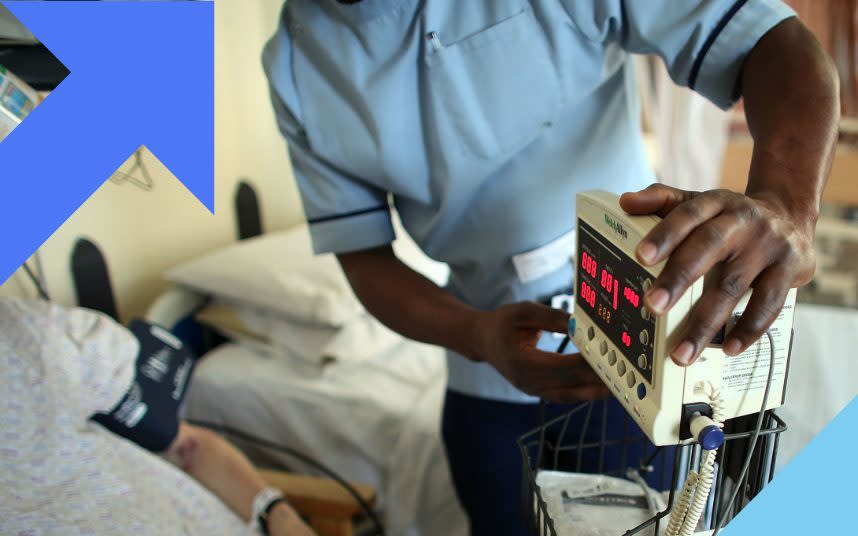The NHS is overstretched and it leaves doctors like me able only to offer treatment, not cures

Welcome to Refresh – a series of comment pieces by young people, for young people, to provide a free-market response to Britain's biggest issues . Here, the Labour MP and doctor, Rosena Allin-Khan speaks from the perspective of working for the NHS

For the last 70 years, our NHS has been the glue which has held our society together – providing world-class treatment for those in need and careers for professionals across the UK
A career in the NHS is a vocation, being so much more than just a job. Upon qualifying, every new doctor starts eager to get to work, treating their first patients. One very quickly learns that the most you can do on your first week in the job is take blood and prescribe paracetamol, with the rest of the time being spent getting lost in sprawling hospital corridors.
Long hours, lack of sleep and high-pressure environments are well-documented elements of being a junior doctor. What you do not hear about so regularly, are the life-long friendships that develop between team members and mentors.
We all enter the NHS with a strong sense of duty to help the most vulnerable, to be there for people in their greatest times of need and to support families experiencing hardship.
By 2048, I truly hope the Government of the day will have ensured the workforce feel more respected than they do now
NHS staff work day-in, day-out, to care for people during the worst days of their lives, but that job is becoming increasingly harder as wards are crumbling around them.
As a doctor in 2018, you often find that while you may have time to treat, you do not have time to cure. An example can be treating a teenage girl who is fainting. We check her over and ensure she is fine to go home but what we would like to do thoroughly, is find out the root cause of why she is fainting – is there an underlying eating disorder or is she being bullied at home or school?
To have these conversations, you need to build trust and that takes time. Time we don’t have, because we're overstretched.

There are many cases of NHS staff leaving the UK to work abroad and by the time the NHS reaches its centenary, the workforce will have undergone significant changes. I worry that the effect of Brexit will see experienced, hard-working staff, deterred from coming to the UK and assisting in the delivery of the first class service everyone expects and deserves.
I am proud to stand shoulder-to-shoulder with doctors, nurses and support staff from different backgrounds, sharing a common goal and I am pleased to see more women entering the medical workforce. At the birth of the NHS, our mothers and grandmothers could never have imagined a time when more women would be entering medical school than men – however, that time is now.
By 2048, the NHS's centenary, I truly hope the Government of the day will have ensured the workforce feel more respected than they do now – the Public Sector pay cap will hopefully have long been lifted, making our staff feel more valued for the work they do. These are jobs that people aspired to do 70 years ago – in 30 years time I hope this is still the case.
Our NHS is ingrained in our society and its success is down to the doctors, nurses, porters and countless other staff who work extremely hard to deliver the best service they can. For them it is a vocation and for Labour it is part of our inherent philosophy. We will save it again by taking it off life support and into a healthier future for the benefit of us all.
Dr Rosena Allin-Khan is Labour MP for Tooting
For more from Refresh, including debates, videos and events, join our Facebook group and follow us on Twitter @TeleRefresh

 Yahoo News
Yahoo News 
